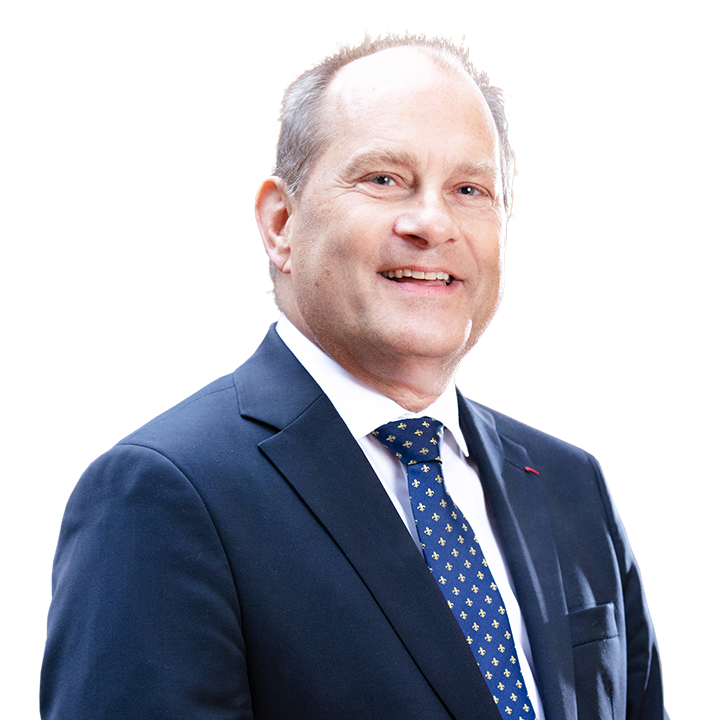 De
multinationale fase 3-studie EORTC 1325-MG/KEYNOTE-054 randomiseerde patiënten
na resectie voor hoog-risico stadium III melanoom naar een jaar adjuvant
pembrolizumab 200 mg iedere drie weken of placebo. In 2018 is gepubliceerd dat na mediaan 15 maanden follow-up de recidiefvrije overleving
significant langer was in de pembrolizumabgroep dan in de placebogroep, zowel
in de ITT-populatie (HR 0,57; p<0,001) als in de subgroep met PD-L1
positieve tumoren (HR 0,54; p<0,001). Prof. Alexander Eggermont (Prinses Máxima
Centrum, Utrecht) en collega’s publiceren nu in het Journal of Clinical
Oncology een update van de RFS-analyse van de studie na mediaan 3,05 jaar
follow-up.1
De
multinationale fase 3-studie EORTC 1325-MG/KEYNOTE-054 randomiseerde patiënten
na resectie voor hoog-risico stadium III melanoom naar een jaar adjuvant
pembrolizumab 200 mg iedere drie weken of placebo. In 2018 is gepubliceerd dat na mediaan 15 maanden follow-up de recidiefvrije overleving
significant langer was in de pembrolizumabgroep dan in de placebogroep, zowel
in de ITT-populatie (HR 0,57; p<0,001) als in de subgroep met PD-L1
positieve tumoren (HR 0,54; p<0,001). Prof. Alexander Eggermont (Prinses Máxima
Centrum, Utrecht) en collega’s publiceren nu in het Journal of Clinical
Oncology een update van de RFS-analyse van de studie na mediaan 3,05 jaar
follow-up.1De pembrolizumabgroep telde 514 patiënten en de placebogroep 505. Tijdens de follow-up werden in de pembrolizumabgroep 190 RFS-gebeurtenissen gezien en in de placebogroep 283. De figuur (panel A: alle patiënten; panel B: patiënten met PD-L1 positieve tumoren; panel C: patiënten met PD-L1 negatieve tumoren) laat zien dat de RFS beter was in de pembrolizumabgroep dan in de placebogroep. De drie-jaars RFS was 63,7% versus 44,1% (HR 0,56; 95%-bti 0,47-0,68) onder alle patiënten; 65,3% versus 46,4% (HR 0,57; 99%-bti 0,43-0,74) onder de 853 patiënten met PD-L1 positieve tumoren; en 56,9% versus 33,3% (HR 0,45; 99%-bti 0,23-0,90) onder de 116 patiënten met PD-L1 negatieve tumoren. De impact van pembrolizumab of RFS was vergelijkbaar in subgroepen met stadium IIIA-, IIIB-, en IIIC-ziekte en in subgroepen met verschillende BRAF-mutatiestatus.
De onderzoekers concluderen dat ook na drie jaar follow-up het RFS-profijt van adjuvant pembrolizumab na resectie voor hoog-risico stadium III melanoom evident bleef.
1.Eggermont AMM, Blank CU, Mandala M et al. Longer-follow-up confirms recurrence-free survival benefit of adjuvant pembrolizumab in high-risk stage III melanoma: updated results from the EORTC 1325-MG/KEYNOTE-054 trial. J Clin Oncol 2020; epub ahead of print
Summary: Updated RFS analysis of the multinational phase 3 study EORTC 1325-MG/KEYNOTE-054 showed that after median 3.05 year follow-up one year of adjuvant pembrolizumab provided a sustained and clinically meaningful improvement of RFS after resection for high-risk stage III melanoma (panel A: overall population; panel B: PD-L1 positive population; panel C: PD-L1 negative population).
